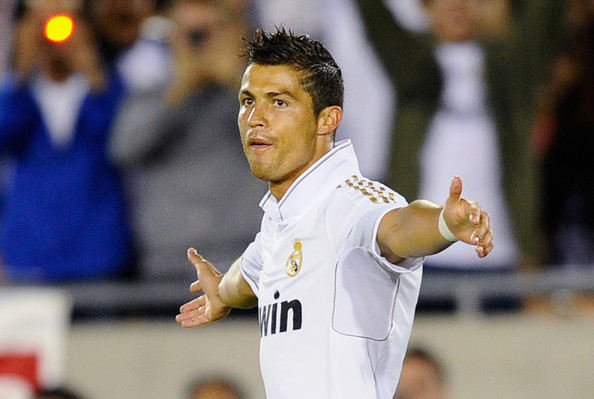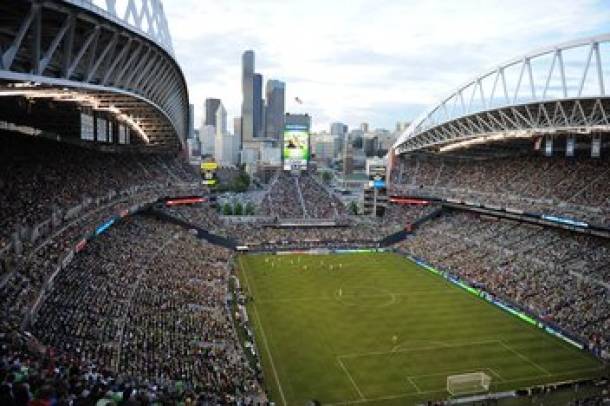It feels like it was just yesterday when Major League Soccer formed in 1996. Since then, the league has expanded to new heights that no one would've imagined. Much of that success can be credited to David Beckham's arrival in the United States when he signed with the Los Angeles Galaxy.
The numbers don't lie. In 2006, MLS had 12 teams, four soccer specific stadiums, had an average attendance of 15,504, no club academies or designated players. In 2012, after the former England international left for Paris Saint-Germain in Ligue 1, MLS had 19 teams, 14 soccer specific stadiums (with a 15th breaking ground), an average attendance of 18.807, 19 club academies, and 31 active designated players (53 in total had played in the league since 2006).
MLS had also earned a national television deal with NBC and had network paid production. Before 2006, the league paid for it's own TV production. The franchise expansion fee had also increased by 400%. Toronto FC joined with a $10 million fee, while the Montreal Impact entered by splashing $40 million. There were other factors that contributed to MLS' growth, but all trace back to Beckham's influence.
Now commisioner Don Garber is preparing for team number 20, New York City FC, owned by Manchester City (majority) and the New York Yankees. They spent $100 million on a franchise fee to enter the league and have plans to build their own stadium somewhere in New York. It's hard to imagine this happening seven years ago.
In other news, the Seattle Sounders average over 40,000 fans per game, Sporting Kansas City, once a laughing stock, is now one of the most popular franchises in the league, and there are three Canadian teams, two of which are sitting in the upper echelon of the league. However, with Garber expecting four more teams to take part in MLS by 2020, there's a sense that by that time, Major League Soccer may be even bigger than ever before.
In 1988, Wayne Gretzky of the Edmonton Oilers was famously traded to the Los Angeles Kings. According to many hockey pundits, he was the reason that the league expanded in several new markets and gained popularity in California. Wealthy owners like Disney and Blockbuster purchased the Anaheim Ducks and Florida Panthers, respectively, for $50 million in 1992. The Panthers haven't accomplished a whole lot (hockey in South Florida, hm...), but the Ducks have won a Stanley Cup, and have had some terrific players represent them like Teemu Selanne and Paul Kariya.
All of this was done, arguably, by just one trade. The same could happen with MLS if a top star decides to take his talents to the US or Canada and sign for one of the 19 (or 20-24) teams in the league. In fact, if it happens, untapped markets like St. Louis may finally get the spotlight they deserve. Gretzky and the Kings toured across the country in potential NHL markets in the preseason to attract interest. If a Cristiano Ronaldo, Andres Iniesta, or Zlatan Ibrahimovic decided to jump across the Atlantic, it could lead to bigger and better things.

Average attendance would go up, much like it did when Beckham was around, plus the TV ratings will surely shoot up from those who won't have the opportunity to purchase a ticket. More highly acclaimed suitors could then purchase a club and make it a success. Unlike the NHL and Gary Bettman, Garber and MLS make sure that wherever they expand, it'll be nothing short of amazing. They don't want a repeat of the Florida fiasco in 2001, and after all of these years, only Chivas USA can be considered a failure. It was before the "Beckham boom" era, so there are going to be some lingering problems.
While a two or three year stint from these players may not make a long term impact, it'll be a domino effect. Many of those who plied their trade in Europe are interested in MLS because they see more and more of their former teammates making the jump. They contact them, weigh the options, and are positively surprised by what they experience. A Ronaldo playing in MLS would create more of that and would lead the way for a young generation both domestically and abroad to participate in the beautiful game in North America.
As for the players themselves, they could be leaders and mentors on and off the pitch. There are a lot of misconceptions about Ronaldo, he's arguably the most competitive person on the planet. Plus athletes usually hate to call it quits. In the US, Ronaldo would still be a star, and he would still contribute both on and off the field for which ever club he would play for.
The biggest issue for the MLS is a national TV audience. Even with NBC airing some matches on the main network, they still hardly crack the million mark. Even if Portland and Seattle, considered the flagship derby of the league, is the game being broadcasted, it still doesn't make much of a difference. Add Ibrahimovic or Ronaldo to the mix, it'll be a good start, because everyone will want to look. Then with those curious eyes looking, they'll be more inclined to look again, even long after those stars retire. If the trickle down effect works, then the MLS could very well gain that TV viewership they so desperately crave.
Major League Soccer already has a strong fanbase at stadiums and almost every team is well run. All that's left is to gather league-wide support. Get fans to look DC United vs. New York Red Bulls even if they're an FC Dallas supporter. Another top player can accomplish that and would therefore propel MLS near the top of the sports landscape in North America.










































